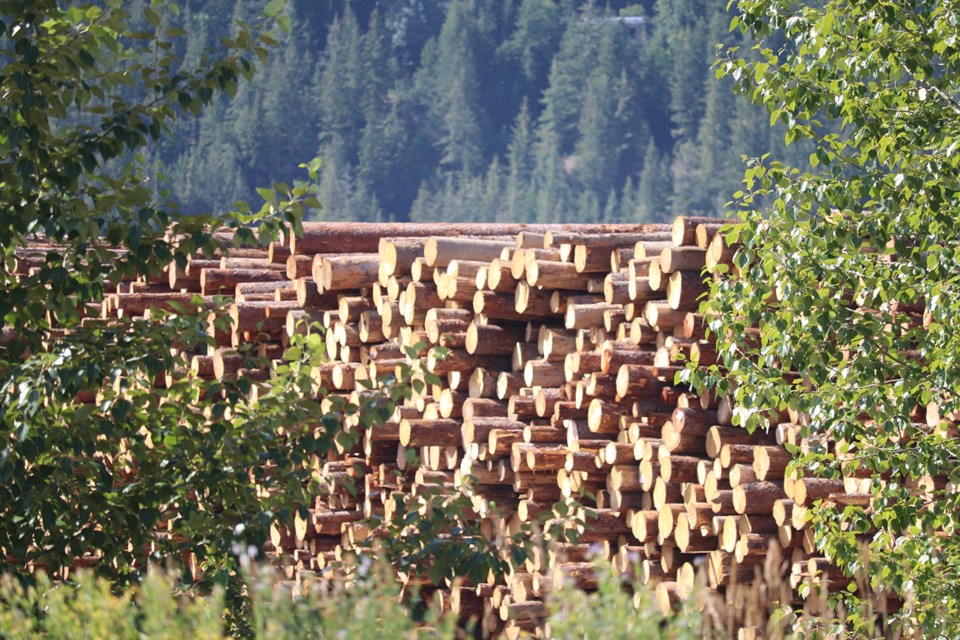Tŝilhqot’in, Lake Babine and Carrier Sekani First Nations are calling on the province to revise B.C.’s Forestry Intentions Paper, which looks at modernizing policies that guide forest management.
The Nations claim the Paper does not consider Aboriginal title, cumulative effects or revenue-sharing.
On July 6, 2021, British Columbia wrote to First Nations across the province outlining its plans for Indigenous engagement to move forward with a new initiative called Modernizing Forest Policy, building off of a similarly titled Forestry Intentions Paper released by Minister Conroy in June 2021.
The Nations are now asking the province to revise the content intended to address Crown Indigenous reconciliation, and commit to a process to co-draft a revised version of the Paper with interested First Nations and the First Nations Forestry Council.
The Nations say the revised version of the paper must set out how forestry laws and policies will be changed to address our Aboriginal title and rights in a manner consistent with the United Nations’ Declaration on the Rights of Indigenous Peoples (UNDRIP) and BC’s own Declaration of the Rights of Indigenous Peoples Act (DRIPA).
“We are a Nation with recognized Aboriginal rights and title and yet the province continues to fail to get with the times and start working with us to ensure that Indigenous voices and priorities are considered and accounted for in the modernization of forest policy in BC,” said Nits’ilʔin (Chief) Joe Alphonse, Tribal Chair, Tŝilhqot’in National Government.
“The province likes to boast about its adoption of UNDRIP and yet we don’t see it reflected in this Forestry Intentions process to address longstanding and fundamental issues that were at the heart of our Supreme Court decision. The secrecy and rush to make changes to forest policies while our Nations are busy dealing with wildfires and COVID is unacceptable. We call on Minister Conroy and the Premier to show leadership and commit to addressing the tough issues head-on and in meaningful collaboration with us.”
The Forestry Intentions Paper only contemplates increasing the share of Indigenous participation in the forest sector without addressing, what the Nations say are more fundamental changes required:
- shifting from longstanding denial of Aboriginal title to actively implementing Aboriginal title and jurisdiction, including through the transition towards land returns to Indigenous peoples and joint Crown-Indigenous forestry management;
- managing forestry in a way that protects and enhances the ability of Indigenous nations and to be able to meaningfully exercise rights and uphold cultural values, including by understanding and taking into account cumulative effects; and
- significantly improving forestry revenue-sharing with affected Indigenous nations.
The Nations say by refusing to plan for a thoughtful and orderly transition to implementing title, rights and UNDRIP, the Paper will promote conflict, litigation, and economic uncertainty.
In a statement, the Ministry of Forests, Lands, Natural Resource Operations and Rural Development (FLNRORD) said the intentions paper represents a vision for a forestry sector that is more adaptable, gets more value from wood products, and is more inclusive.
“The intentions paper is the beginning of the discussion, and we look forward to further engagement as we work together and build a more diverse forest sector. In partnership with First Nations titleholders, this new approach will ensure the benefits of forestry are shared more widely and fairly with Indigenous people,” stated FLNRORD.
“Our government is happy the T’silihqot’in Nation, Lake Babine Nation and Carrier Sekani First Nations want to be more involved in working with us to develop a forestry sector that works for all British Columbians. We look forward to further discussions with these nations and others as we move forward.”
Meanwhile the Nations are calling on Forestry Minister Katrine Conroy, the premier and cabinet to co-develop a substantially revised Forestry Intentions Paper.
“We know that we can do better. We look forward to working with the province to help develop a shared and prosperous future that is truly reflective of Indigenous and non-Indigenous communities in British Columbia.”



